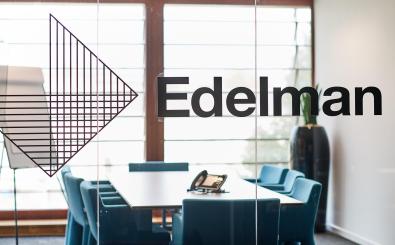A version of this post appeared on Risk & Compliance.
In September 2018, Danske Bank’s CEO resigned amid the swirl of whistleblower allegations of Russian interference in European economies and claims of massive money laundering. In their account of that crisis in Raconteur Opinions, Veta Richardson, President and CEO of the Association of Corporate Counsel (ACC) and Liesbeth De Ridder, Secretary General of GUBERNA, contend the case was largely avoidable based on the findings of an internal review.
The authors concluded that the board of directors lacked an essential ally – the general counsel (GC). Sometime before the allegations surfaced, the GC ceased reporting to the CEO and began reporting to the chief financial officer. In 2014, in-house counsel sought to further investigate the whistleblower allegations, but two executives overruled him. A modern legal department, the authors contend, might have averted one of Europe’s biggest scandals.
A recent global study by the ACC delivers a timely and fascinating footnote to the Danske event. The ACC concluded that GC who report directly to the CEO provide a leading indicator of their influence on critical corporate events and crises, while also illuminating a new mandate to create a culture that reinforces ethics and integrity driven by behavior.
Indeed, the GC is becoming the most important C-suite executive on reputation, crisis and non-market risk, among other critical issues that have sparked a “constant crisis” environment at many corporations with unprecedented operational uncertainty. As damaging issues increasingly erupt, from internal espionage and privacy invasions to consumer outrage and executive misconduct, the GC has become the crisis management quarterback with discernibly impressive impact, influence and positive results.
GCs are leading from the front on a variety of diverse crisis, reputation and cultural matters. They include:
- Rules-based compliance systems that frequently mortgage common sense and good judgment;
- Inadequate measurement and alignment on top tier corporate risks;
- Behavioral risk and potentially toxic performance incentives;
- Inadequate information sharing processes and networks;
- Top-down management structures that commoditize promising young talent and future leaders;
- Corporate values that are merely words on a website.
Like no other corporate officer, the GC is positioned uniquely to advise business decision makers proactively on both destabilising market and non-market risks. In fact, many GCs suggest their biggest challenges do not involve legal risk.
Consider how the GC of pharmaceutical giant Sanofi effectively crafted the perfect response to shut down American actress Roseanne Barr’s attempt to blame Sanofi’s Ambien for her abhorrent rant that led to her TV show’s cancellation. Barr contended that Ambien explained her late-night tweet attack against Valerie Jarrett, an adviser to former U.S. President Barack Obama. The Sanofi GC approved the perfect response: “People of all races, religions and nationalities work at Sanofi every day to improve lives of people around the world. While all pharmaceutical treatments have side effects, racism is not a known side effect of any Sanofi medication.”
Above the Law noted that the in vetting the tweet, the GC asked three basic questions before unilaterally hitting the “go button”: Is it truthful and not misleading? Is it consistent with our values? Is it legal?
Still, against today’s backdrop of continual fear of a reputational crisis, it is not surprising GCs feel quite vulnerable. Eighty-five percent of GCs surveyed recently by Morrison & Foerster ALM Intelligence (ALM) ranked reputation and brand crises as their No. 1 concern, followed distantly by corporate risk at 58 percent. One GC recently said that the reputation risks that keep her up at night include consumer activism, rising operating uncertainties, immediate digital and iPhone “reporting,” and the klieg lights that shine on workplace and corporate misconduct.
Most GCs noted that a solid crisis response plan must at least contain fundamental information tested through simulation scenarios.
Companies must put clear and vigorously tested escalation procedures in place, and each senior leader should tap a deputy as a stand-in, if necessary. Many small issues bust into full-blown crises because information winds its way too slowly through the corporate hierarchy before an executive leader is found with the authority to make a final decision. ALM maintains that this is a clear and costly vulnerability for over one-third of companies that do not include necessary escalation procedures in their crisis management plans.
Unlike any other professional discipline, lawyers are trained rigorously to be issue spotters, experts in multivariable risk and fluent on both sides of every issue that arises. And, perhaps distinctly, full committed to the “sanctity of facts.” Thus, they are equipped to make decisions with imperfect information and that take calculated risks to manage and avoid potentially franchise crises.
As the “defender- and challenger-in-chief” in promoting and protecting dynamic corporate values and performance cultures, GCs prove to be the stewards of principles-based compliance anchored in an operating mindset that includes integrity as well as ethical and cultural values. Because the GC is accountable to corporate directors and shareholders, they must educate and direct them on new operating realties, particularly those rooted in corporate culture that present reputational threats. The multifaceted thinking skills of the GC have also become imperative in stress-testing the business, cultural and social repercussions of corporate decisions and enable durable and proactive risk management.
Today’s GC has become an essential participant in setting the tone at the top and driving a corporate culture that creates long-term and enduring reputational value by being more responsive to all stakeholders.
Harlan Loeb is global chair, Crisis & Reputation Risk Advisory.

